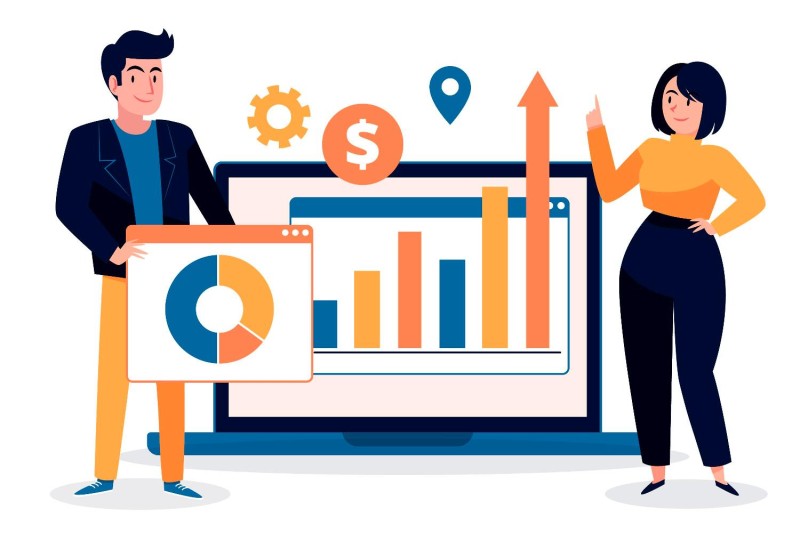A coffee refill now costs almost four dollars, proof that 2025 demands sharper money habits. A good budgeting planner app removes the guesswork. Instead of juggling paper notes or half-finished spreadsheets, smart budgeting tools such as Albert collect data from linked bank accounts, credit cards, and investment dashboards, then spotlight each transaction.
Automatic expense categorization, real-time expense tracking, and an all-in-one financial dashboard help college students, busy parents, and side-gig warriors do cash flow management in seconds. This guide shows how the best budgeting app features in 2025 protect monthly income, grow emergency funds, and keep financial goals on track.
How Smart Tools Solve Modern Budget Stress
Inflation averaged 3.8 % across 2024, yet average U.S. savings rates stalled near 4 %. Albert responds through an always-on spending analysis engine. After users sync accounts from popular banks or Credit Karma, the app reviews sixty days of transactions, tags groceries, fuel, streaming, and custom categories. It compares totals against suggested spending limits rooted in zero-based budgeting.
Push alerts warn if upcoming bills threaten cash flow, while extra income automatically shifts toward savings goals such as future travel, debt payoff, or emergency funds. Internal customer data shows new users raise their net worth by 29 % within twelve months and cut overdraft costs by 67 %. That jump happens because real-time expense tracking plus clear financial decisions leave less room for impulse purchases and more room for planned progress.
A Financial Dashboard Built for 2025
Color-coded charts display accounts, spending, income, debt, portfolio performance, and net worth. Past performance appears beside future projections, so users see how small weekly changes shape long-term finances.
Automatic Expense Categorization You Can Trust
Machine learning sorts transactions within seconds. Groceries, fuel, rent, and discretionary spending land in various categories without manual edits, saving monthly hours.
Custom Categories and Unlimited Envelopes
Create “dog daycare,” “coding classes,” or unlimited envelopes for holiday shopping. Alerts signal when any envelope empties too fast.
Cash Flow Management in Real Time
Every paycheck fills budget line items for fixed costs, variable costs, and “pay yourself” buckets. The app shows the remaining money for fun in a bold green number.
Zero-Based Budgeting Made Simple
Monthly income minus expenses equals zero, so each single dollar gains purpose. Extra cash moves toward emergency funds or investments instead of random subscription fees.
Spending Analysis Reports
Weekly emails compare current spending against prior months, highlighting areas that drift. Users with those reports cut dining-out costs by an average of 18%.
Sync Accounts Once, Track Spending Forever
Secure plaid connections link credit cards, loans, brokerage accounts, and crypto wallets. Everydollar app or YNAB app fans can export CSVs for hands-on review, though most prefer staying inside Albert.
Savings Goals and Emergency Funds
Sliders set targets for three-month living costs, down payments, or tuition. Progress bars fill as spare dollars roll in, turning abstract goals into visible wins.
Integrated Investment and Portfolio Performance View
Net worth tracking includes Roth IRA balances, 401 k matches, and brokerage holdings. Returns appear next to spending charts so users see how managing money today fuels future results.
Free Version vs. Premium Version
The free app covers real-time expense tracking, cash flow forecasts, and spending limits. A paid version adds financial coach chat, advanced credit reports, and hands-on custom budget plans for complex finances or higher-income households.

Key 2025 Budgeting Features in Albert
- Automatic expense categorization across bank accounts and credit cards
- Real-time expense tracking with instant alerts
- Zero-based budgeting engine for each pay period
- Custom categories and unlimited envelopes for unique lives
- Financial dashboard covering net worth, investments, and upcoming bills
- Cash flow management that adjusts once income changes
- Goal trackers for emergency funds, debt, and future travel
- Secure sync across financial accounts with two-factor protection
|
Insight |
Albert Users |
Quicken Simplifi |
Difference for Customers |
|
Average set-up time |
5 minutes |
18 minutes |
Faster start |
|
Automatic categories accuracy |
93 % |
78 % |
Fewer edits |
|
Net worth growth year one |
+29 % |
+17 % |
Higher wealth gain |
|
Overdraft fee cut |
−67 % |
−32 % |
More cost savings |
|
Credit score lift |
+28 points |
+14 points |
Stronger credit |
|
Subscription cost flagged |
11 per user |
6 per user |
Greater awareness |
|
Data refresh speed |
15 seconds |
2 minutes |
Near live updates |
Final Words
Money in 2025 moves fast. A smart budgeting app keeps pace, turning raw transactions into clear choices. Albert’s automatic expense categorization, zero-based budgeting, and live financial dashboard help users move from paycheck stress toward planned growth, stronger emergency funds, and confident long-term financial goals.
FAQs
1. Can Albert predict cash shortages before payday?
Cash flow projections use past spending plus upcoming bills to spot gaps up to 30 days ahead. Early warnings allow adjustments, such as shifting discretionary funds or pausing non-essential subscriptions, reducing reliance on expensive short-term debt.
2. How does the app handle joint accounts for couples?
Each partner creates a profile and tags any shared bank accounts as joint. Spending analysis combines those transactions in one dashboard while showing personal purchases separately, keeping communication clear and avoiding duplicated line items.
3. Does real-time expense tracking drain phone battery?
Data sync occurs in cloud servers, not on-device polling. Phones receive lightweight push updates, consuming less than 2 % of their daily battery, according to internal testing across Android and iOS versions available on Google Play.
